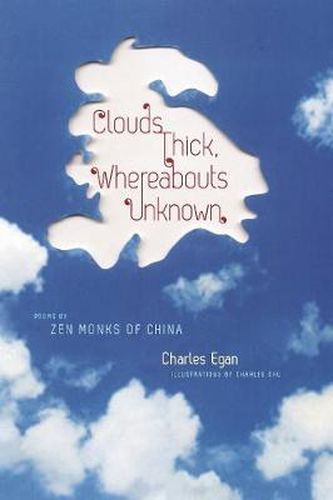Readings Newsletter
Become a Readings Member to make your shopping experience even easier.
Sign in or sign up for free!
You’re not far away from qualifying for FREE standard shipping within Australia
You’ve qualified for FREE standard shipping within Australia
The cart is loading…






Compiled by a leading scholar of Chinese poetry, this anthology provides interpretive strategies that best capture the ideological and literary nuances of Chan (Zen) poetry. Charles Egan outlines basic Mahayana Buddhist tenets, Chan development, and principles of Chinese poetry, enabling a rich encounter with works that were composed, paradoxically, to say more by saying less. The anthology features monk-poets from the eighth to seventeenth centuries whose writing ranges from direct vernacular to evocative, imagistic styles. Egan’s faithful and elegant translations of poems by Han Shan, Guanxiu, and Qiji, among many other monks, will delight all readers, and Egan’s detailed notes and analyses, which illuminate the specialized language of metaphor and allusion developed over hundreds of years of Chan discourse, will prove invaluable to scholars. Monk-poets joined mainstream ideas on poetic function to religious reflection and proselytizing, inventing a distinct genre that influenced generations of Chinese poets, critics, and writers. The simplicity of Chan poetry belies its complex ideology and sophisticated language, elements Egan vividly explicates through religious and literary critique. Exquisite paintings by Charles Chu further enhance the aesthetic and intellectual experience of these works, creating a truly sensational experience for readers of every background.
$9.00 standard shipping within Australia
FREE standard shipping within Australia for orders over $100.00
Express & International shipping calculated at checkout
Compiled by a leading scholar of Chinese poetry, this anthology provides interpretive strategies that best capture the ideological and literary nuances of Chan (Zen) poetry. Charles Egan outlines basic Mahayana Buddhist tenets, Chan development, and principles of Chinese poetry, enabling a rich encounter with works that were composed, paradoxically, to say more by saying less. The anthology features monk-poets from the eighth to seventeenth centuries whose writing ranges from direct vernacular to evocative, imagistic styles. Egan’s faithful and elegant translations of poems by Han Shan, Guanxiu, and Qiji, among many other monks, will delight all readers, and Egan’s detailed notes and analyses, which illuminate the specialized language of metaphor and allusion developed over hundreds of years of Chan discourse, will prove invaluable to scholars. Monk-poets joined mainstream ideas on poetic function to religious reflection and proselytizing, inventing a distinct genre that influenced generations of Chinese poets, critics, and writers. The simplicity of Chan poetry belies its complex ideology and sophisticated language, elements Egan vividly explicates through religious and literary critique. Exquisite paintings by Charles Chu further enhance the aesthetic and intellectual experience of these works, creating a truly sensational experience for readers of every background.